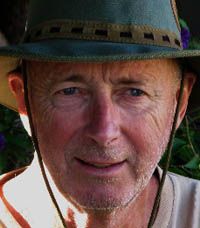Out of Transkei
As Umtata disappeared behind us in the early morning mist I breathed a sigh of relief at escaping the rawness of this part of Africa. It was, indeed, a short and unique experience and a vastly different environment from the Durban I had left a week ago. At the time I wondered if this was just a taste of what was to come and how I would receive and deal with the many facets of life in South Africa if I stayed for long. In the ensuing years I was to experience the vastness and diversity of this great multi-tribal and multi-cultural land.
I suspect South Africa is the only country in the world with eleven official languages – Afrikaans, English plus nine African tribal languages.How on earth do people communicate? Surely nobody can speak eleven languages. I banished those thoughts as we left the Xhosa speaking people of the Transkei and Ciskei which is now known as the Eastern Cape. Parking the rental car we quickly hopped on a local flight from East London to Cape Town airport, a mere 885 kilometres.
Welcome to Cape Town
From one extreme to another, this place was an awesome, cosmopolitan, vibrant city housing a couple of million souls. The contrast was staggering. But we were not going to be here for long; maybe seventeen days at most. Ten days of those had been allocated to the ‘West Coast Cruise’; where 70 private yachts sailed from Cape Town to Lambert’s Bay via Langebaan, Saldhana and back. Before we left Durban a chance meeting with a real character from the north of England and we had been invited to join his crew for the duration. Charlie, a civil engineer, lived in Cape Town and was reputed to be a very good sailor. He was also a very good socialiser and boozer as we were soon to find out.
As we were due to set sail sometime the next day Charlie suggested we could stay on the boat overnight rather than book a hotel room. Plied with enough Castles to sink his yacht easily we staggered through the marina and collapsed into our bunks. Although Charlie told us that we would be stocking the boat in the morning he forgot to tell us there wasn’t much bedding on board. Anyone who knows the Cape will know how bloody cold the water is and sleeping on board in a bumpy Sou’wester without a load of blankets is a teeth-chattering experience even for the hardy. The Castle haze helped us through the night as the chill froze the hangovers. So we were ready for stocking up bright and early.
Anchors aweigh
It really was great fun to be on one of 70 yachts sailing out of Cape Town Waterfront North up the West Coast of South Africa. For the first time I had seen, within 24 hours, the wine farms of Stellenbosch and Table Mountain from the air; slept under Table Mountain and had now seen it, as so many mariners have, from Table Bay. I felt more than good as we sailed past Robben Island in brilliant sunshine and salty sea air. ‘Ten days of this may bring me back for more’ wandered through my head as I did my best to acquire sea legs as soon as I could. Surprisingly I acclimatised easily and felt like an old sea dog much quicker than I expected. After all, although fit, I was no spring chicken; forty-eight to be precise.
Charlie set a cracking pace and soon we were moving towards the front of the pack but unfortunately another yacht had got into a spot of bother and as we were closest we went to help. It turned out to be nothing serious and we were soon on our way once more but with a lot of ground (water) to make up.
Night falls on Dassen Island
With Robben Island behind us and dusk descending we pulled into Dassen Island’s singular little bay and dropped anchor for the night. Armed with crayfish licences the crew cast nets over the side of the boat. Within minutes we were hauling in armfuls of crayfish. The babies were thrown back into the sea quickly and we only kept enough to feed us for supper. Our stocks of Old Brown sherry took a pasting as we warmed our cockles while telling tales and listening to the hissing crayfish cooking amidst clouds of steam. Cook of the day emerged from the galley laden with a tray of fresh salad, pickles and chunks of fresh bread. I had never eaten like this before; at sea, at night, gorging on nature’s bounty. The small islands around the coast, which are home to sea lions, penguins, oyster catchers and other wildlife, are protected so without permits you forbidden to go ashore. Naturally there are many without licences who run the gauntlet, poaching Perlemon, Crayfish, mussels and other protected species of marine life.
Some get caught most, probably, don’t.
Things change quickly at sea as food and booze stocks dwindle and some people eat and drink more than others. Despite the fact that the kitty is contributed equally it is not necessarily shared equally. Land lubbers may not appreciate the ramifications of this but I soon learned that, even on a short sea trip, where people are living in a confined space, things can become a little fractious.
But right now I was in seventh heaven as I cuddled up, fully blanketed with myself, for the night. I couldn’t wait for what tomorrow might bring out on the open sea.
James King is a writer, blogger and photo-artist. Born in England, he travelled to over 20 countries and in 1995 emigrated to South Africa. In 2011 James moved to Thailand, in semi-retirement, where he built and sold one house, renovated another, wrote various e-books and started a blog (jamoroki.com).

